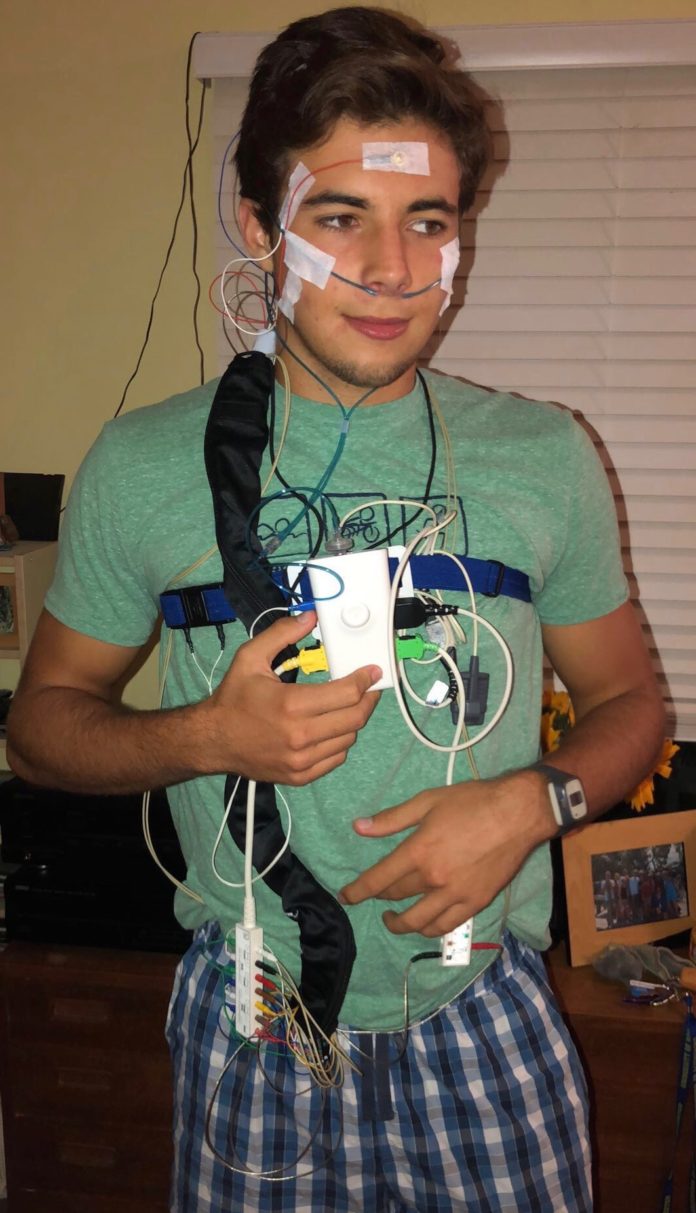
Chapel Hill senior Quinn MacLean participated in a two-week sleep study at Duke University Medical Center in September, measuring the effects of sleep quality on ADHD symptoms in adolescents.
The study was conducted by Jessica Lunsford-Avery, a clinical psychologist at Duke.
Her research is focused on finding out how sleep problems can contribute to increased psychiatric symptoms for children and adolescents with ADHD.
The study enrolls people with and without ADHD. MacLean, who does not have ADHD, was a base subject used for comparison. MacLean went in for an interview in which he had to take drug and IQ tests to make sure he met the qualifications.
Lunsford-Avery’s hypothesis was that if someone with ADHD has a poor night’s sleep, their symptoms will worsen.
As of now, the results are consistent with the hypothesis. Lunsford-Avery is currently seeking more teens in the area to continue her study.
Reflecting on the study, MacLean said he would recommend participating to anyone considering it.
“I think, overall, it’s worth it,” MacLean said. “But you need to be ready to be uncomfortable during the three nights when you have to wear the wires and tubes because nobody really tells you it’s going to be that bad. Once you put them on, it’s kind of a different experience.”
For three nights out of the two weeks, he wore wires all over his body to record his brain waves and oxygen levels. He also wore a nasal cannula, a tube device in the subject’s nose used to monitor breathing.
“The wires I had to wear, especially the nasal cannula, were really uncomfortable when I went to sleep,” MacLean said. “I don’t think it was a result of my participation, but I ended up going to sleep a lot later the nights that I took part in the study. Maybe it was related and I didn’t realize it.”
MacLean also received an oximeter, a device worn on the wrist to measure blood oxygen levels, pulse and light exposure throughout the study.
When the two weeks were up, MacLean took another test, used to compare his brain activity before and after completing the study. MacLean ended up earning $350 in compensation.
He had not participated in any studies before. After MacLean’s mom saw a poster advertising the study on University of North Carolina’s campus, she signed him up.
The study required MacLean to travel to Duke Medical Center at least five times with his parent. He said the time commitment should be a factor in deciding to participate.
“Your parents play a huge part in [the study],” MacLean said. “It’s not something you can do independently. They have to go into the interview with you on the first day, drive you to and from the study each night that you’re wearing the wires and they have to come with you to the last test after you wear the wires.”
To find out more about the study, teen volunteers aged 13-17 (with or without ADHD) may call (919) 681-0013.











